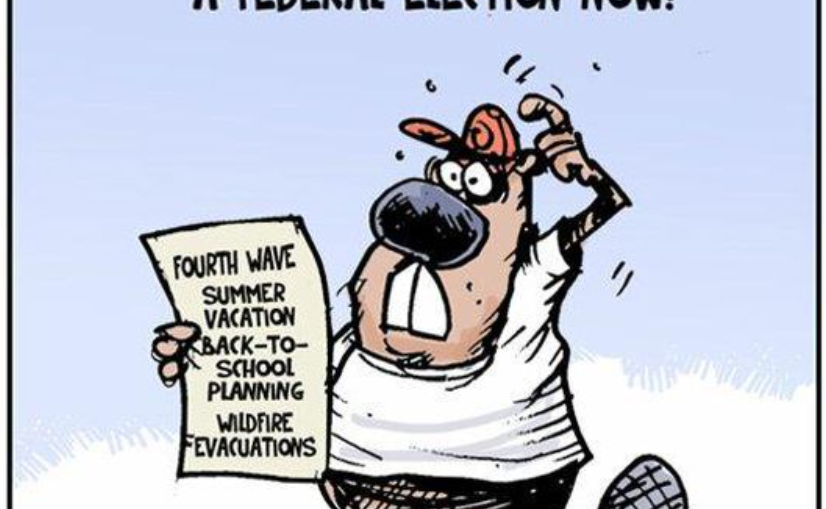
Part 1 – A Canadian Political Primer:
Hi everyone,
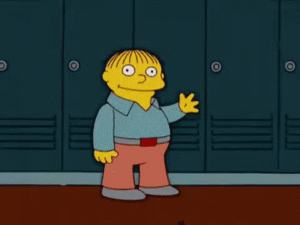
I’ve crawled out from under my bed because some of you have seemed curious about what’s going on up here in America’s hat. Justin Trudeau has dissolved Parliament and called an election for September 20th. He was just two years into his up-to five-year term, which begs the question, “Why are you lunatics going through this again? Didn’t you learn from the last US election that they are bad & to be avoided?!”
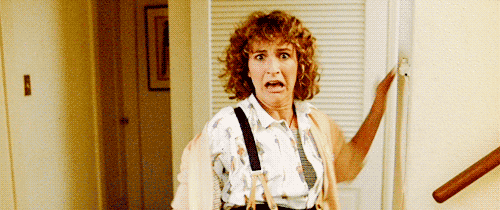
Well let me tell you something, random Commentist, it’s not by choice! In fact, the timing of most Canadian elections are based not on law but the whims of the person in charge. So how we got here, and who is involved, is something that I will patiently explain to the residents of Canada’s jorts in three parts for those of you who will threaten to move here after the 2024 Presidential election. Part 1 will be on how the system works, Part 2 will be on the political parties, and Part 3 will be on the leaders. After the election, I will have a fourth part that breaks down why the results played out the way they did.
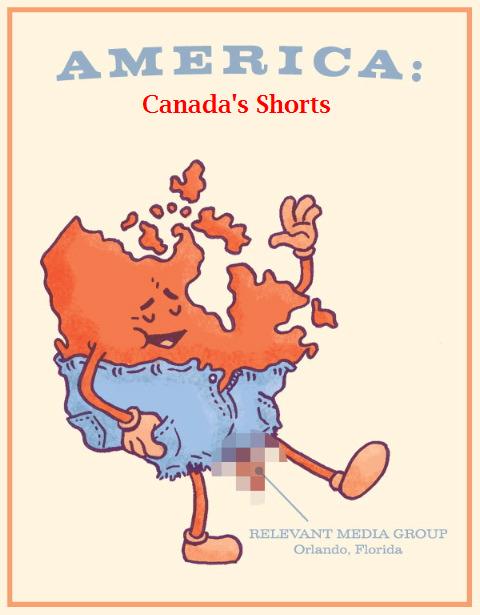
Because I’m also not totally doing this as prep for the start of the school year. Elections are gold in public education, and a boon to both civics & English teachers.

I. Canadian political terminology
There are various political terms & words that don’t exist in a two-party system like the United States operates under. So, here’s a brief primer:
- Prorogue: to discontinue a session of parliament without dissolving it.
- This is normally done in two-year sessions, to give a beginning & end to a legislative session. In Canada, there are usually two sessions of Parliament.
- Dissolution: to close Parliament and hold an election.
- This is a power the Prime Minister may exercise at the discretion of the Head of State, in this case the Governor General.
- Election Calendar: the length of the election period.
- By law, a Canadian election has to be a minimum of 36 days or a maximum of 50 days.
- When Justin called the election on August 15th, thirty-six days takes us to September 20th.
- By law, a Canadian election has to be a minimum of 36 days or a maximum of 50 days.
- Third-party: a party that lies outside the duopoly that has traditionally governed a country.
- A political party that has limited appeal, but maintains a steady base of support.
- They will always win some seats, but never enough to contend for actual power.
- Can be minority partners in a governing coalition, or trades support for legislation in excahnge for getting party agenda items included in that legislation.
- A political party that has limited appeal, but maintains a steady base of support.
- Governor General: The official representative in Canada of the official Head of State – the British Monarch.
- History:
- From 1867-1921, the person was appointed by Britain.
- Between 1921-1952, the person was appointed by Britain, with recommendations about whom from Canada.
- Since 1952, the person has been a Canadian, recommended by the Canadian government to the Monarch for approval.
- Eligibility:
- Anyone who is a Canadian citizen above the age of majority.
- Unlike the Presidency, there is no minimum age or naturalization considerations.
- There is a political standard of
- Rotating between first-language English & French speaking.
- Rotating between the four regions of Canada.
- The position being awarded via “patronage” to a long-time party supporter.
- Anyone who is a Canadian citizen above the age of majority.
- History:
- House of Commons: (the “House”)
- Members of the House are elected by a “first past the post” system
- The country is broken up into geographic areas called “ridings”, which are drawn up by a non-partisan electoral commission.
- In each riding, candidates from each party run. (Independent candidates are rare.)
- In 1992, to reduce the number of “fringe parties”, an amendment to the Elections Act required all candidates to put down a refundable “nomination deposit” (currently $1000), predicated on their obtaining 10% of the vote in that riding.
- No 10% = no refund.
- Sections 24 and 28 of the Elections Act legislates that to be a registered party, a party must have 50 candidates on the ballot.
- In the 2003 case of Figueroa v Canada, Figeuroa argued that the 50-candidate rule discriminated against smaller parties and was unconstitutional under Section 3.
- However, the Supreme Court of Canada found that Section 3 does not provide for unlimited participation in the political process.
- In 1992, to reduce the number of “fringe parties”, an amendment to the Elections Act required all candidates to put down a refundable “nomination deposit” (currently $1000), predicated on their obtaining 10% of the vote in that riding.
- In the election, the candidate with the most votes wins that riding’s “seat” in the House, becoming that riding’s Member of Parliament, or “MP”.
- They don’t have to win 50% of the votes, just the most out of all candidates
- It’s quite common in a four-party race for the winning candidate to get just 35% of the overall vote.
- This is the advantage, or disadvantage, to the First Past The Post system.
- It’s quite common in a four-party race for the winning candidate to get just 35% of the overall vote.
- They don’t have to win 50% of the votes, just the most out of all candidates
- A government is formed by the party with the most seats in the House of Commons
- if one party wins more than 50% of the seats, they are a “majority government”
- if no one party wins 50% of the seats, the party with the most seats will attempt to form a “minority government”
- The leader of the governing party becomes the “Prime Minister”
- All party leaders are chosen by their party members.
- Canadian elections elect the party to rule; the party choses who will be their choice for Prime Minister.
- Because we vote for the party, not the leader, we are forced to accept their choice of leader.
- The party with the second-most seats forms the “Official Opposition”
- Its leader becomes the “Opposition Leader”
- All other parties sit in organized groups on the Opposition side of the House, but have no official title.
- Members of the House are elected by a “first past the post” system
- Majority government: to hold a majority of Parliamentary seats, allowing a party to form an unopposed government.
- In Canada, the House of Commons – the governing body – holds 338 seats, meaning that a party has to win 170 seats to form a majority government.
- Minority government: no one party holds a majority of seats, so a government is formed one of two ways:
- The party with the most seats is invited by the Governor General to form a government, and survives until they are defeated by a non-confidence vote or they ask the Governor General to dissolve Parliament.
- Two or more parties enter a formal coalition to provide governance.
- The leader of the largest partner party becomes Prime Minister, and important roles are given to members of the other party to secure support.
II. How Canadian Democracy Works
Canada is what’s called a “Constitutional Monarchy”, in that we have a written constitution that outlines our governing structures, but our Head of State is the British monarch. This has been official since April 17, 1982, when Justin’s dad got an English lady of German descent to sign a piece of paper saying it was so.
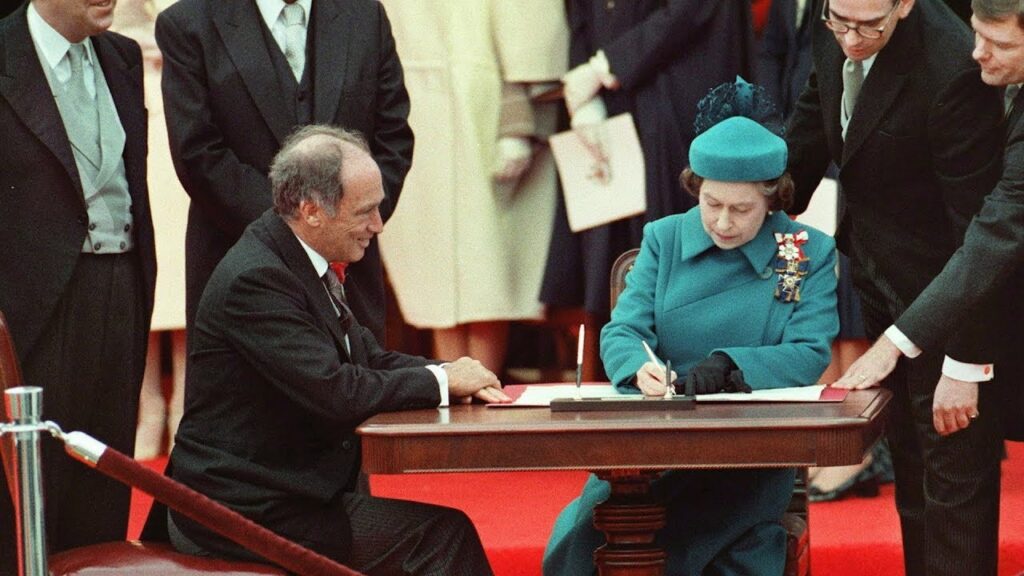
In that document is something called “The Canadian Charter of Rights and Freedoms“, which is not unlike the US Bill of Rights but with one important difference.

The Charter, as it’s commonly known/cursed at, contains all the basic rights Canadians are entitled to with respect to the federal & provincial governments. Sections 3-5 of the Charter cover the basics for mandating Canadian elections, and Section 4 in particular says,
Section 4 – Maximum duration of legislative bodies
4. (1) No House of Commons and no legislative assembly shall continue for longer than five years from the date fixed for the return of the writs at a general election of its members.
This means that we are expected to hold an election no later than five years from the date of the last federal or provincial election. At the federal (national) level, the last election was held on October 21, 2019, which was supposed to mean that the next one was expected no later than October 18, 2024.
Further to this, in 2007 the Conservative government of Stephen Harper
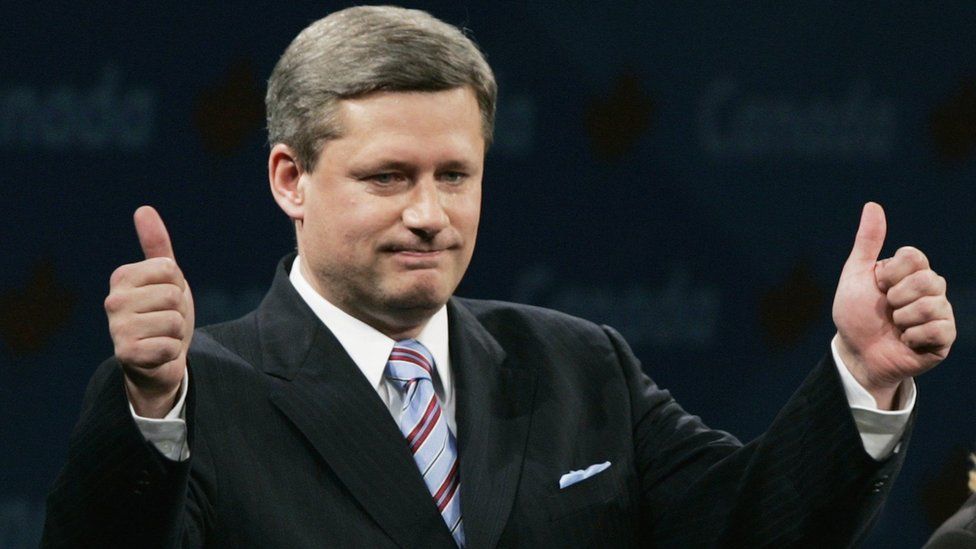
passed Bill C-16, the “Act to Amend the Canada Elections Act“. This put into force the “standard” that future Canadian elections were to be held every four years on the third Monday in October.
However, caveats to this Act exist:
- Because it is not “enshrined” in the Constitution (i.e.- passed by the federal government & 7 of 10 provinces equalling 50% of the national population), it can be conveniently ignored when exigent circumstances” allow. An “Act” doesn’t have the same constitutional force as a “Law”.
- Under the rules of a (British) parliamentary democracy, a “minority government” can cause an election to be held if
- They are defeated by the opposition parties in a “non-confidence” vote, meaning the other parties used their numbers to gang up on the governing party & vote down a key piece of legislation – like a budget or treaty.
- The Prime Minister requests a dissolution of parliament from the Governor General (the Monarch’s representative) because the operation of government had become dysfunctional and should be dissolved.
Because the Harper changes did not “affect the powers of the Governor General, including the power to dissolve Parliament at the Governor General’s discretion”, Prime Ministers in minority situations can orchestrate an election call at their polling convenience.
III. Evading the Law You Wrote
The exceptions and omissions built into the Elections Act changes were proved one year later, when PM Harper, then in a minority government situation, called a snap election for October 14, 2008 to try & obtain a majority. This was reinforced when the Supreme Court of Canada dismissed a challenge to the election call because the power to authorize an election lies with the Governor General, not the Prime Minister, even if the Governor General’s only qualification for the job is being a former CBC news reader who spoke politely about the person who nominated her for the job.
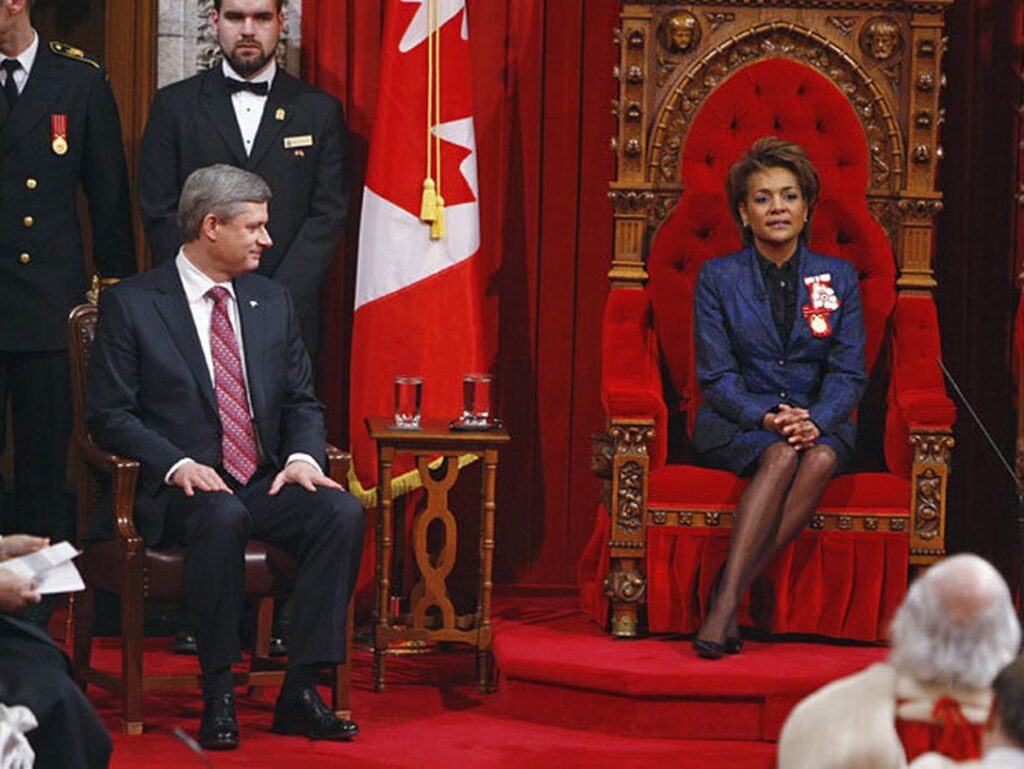
[FYI – the last Governor General to withhold consent for an election was Lord Byng to Mackenzie King in 1926. In short, the “King-Byng Affair” started when Liberal PM Mackenzie King wanted an election to avoid a scandal being brought up in Parliament. Lord Byng, hero of Vimy Ridge, saw through King’s attempt, and instead allowed his Conservative opponent, Arthur Meighen, to form a government. This was quickly defeated in a non-confidence vote, and the Governor General was then forced to hold the election. King used this “British interference in Canadian democracy” to deflect attention from his scandal & win a majority.]
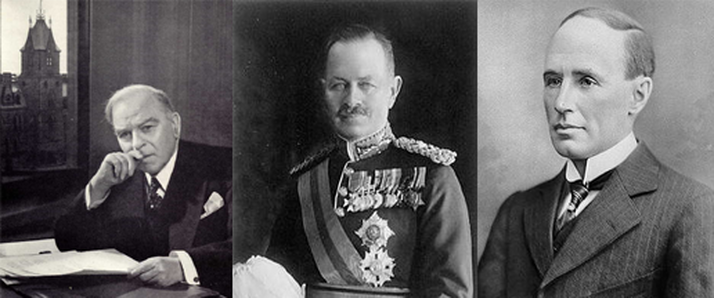
Harper guessed wrong, and only won another minority government. Although his term fell during the period of The Great Recession, the economic & banking structure of Canada enabled it to withstand the economic paralysis felt by other countries, in particular the USA. Even though he was not a popular individual figure, his government was given popular credit for maintaining economic stablility, emphasized by the periods in 2008 & 2010 when the Canadian dollar reached & exceeded parity with the US dollar.

This second minority lasted until April 2011, when the opposition parties voted against the Harper budget & forced an election. Stephen Harper wanted this election, and devised an austerity budget that the opposition would naturally object to. The Opposition parties were dogged all through the campaign about talk of a “national coalition” government if one party couldn’t defeat the Conservatives, and Harper mercilessly harangued new Liberal leader (and former Harvard professor) Michael Ignatieff about both his incompetence to lead and his seeming desperation to claim power by any means necessary. In Quebec, the Conservatives were able to make inroads because separatist Bloc Quebecois leader Gilles Duceppe couldn’t balance the duality of fighting for independence while also trying to gain power in a government he opposed. This poor Liberal & BQ leadership, and the rise of Jack Layton as the NDP leader, allowed Harper to win a majority in the May 2011 election.


Not the best “trust me” looks for a separatist.
The first Canadian election held under the auspices of the Harper Election Act changes was in October 2015. In a surprise upset, the election was a majority won by Justin Trudeau & the Liberals, who were at best expected to reduce Harper to minority status again. Popular analysis of the results concluded that people were tired of Harper, and his continued message of fiscal conservatism conflicted with people’s post-recession attitudes. Despite his party popularity, this defeat led to Harper’s resignation & replacement by Andrew Scheer, who was seen as a youthful alternative to Trudeau that could win back alienated supporters.
In the intervening four years leading to the fixed-date October 2019 election, Justin was faced with two significant, possibly politically fatal scandals:
- the SNC-Lavalin scandal, which I broke down in February 2019
- his penchant for blackface, which you’ve all heard about
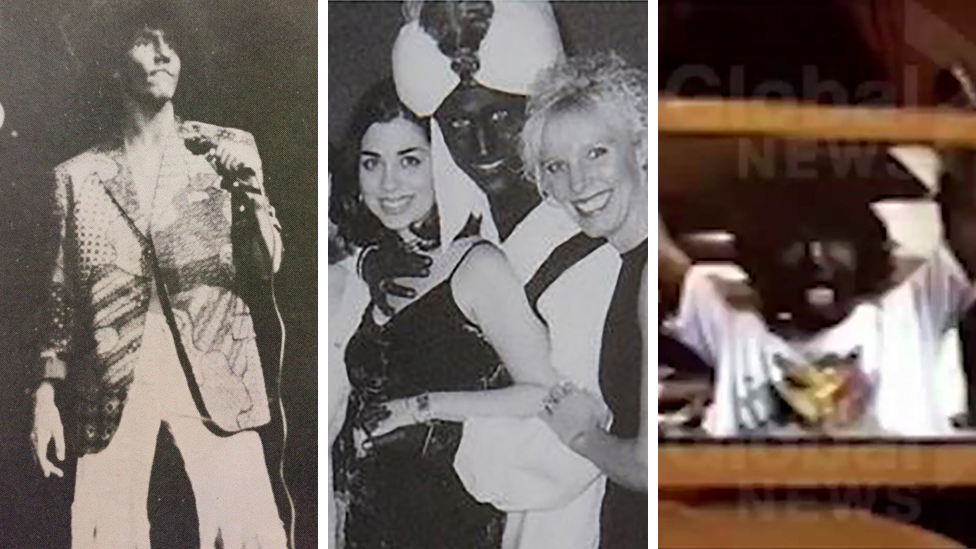
However, Scheer’s sheer incompetence to capitalize on these significant “miscues”, plus his adoption of a social conservative policy platform, allowed Trudeau to keep power, albeit with a minority.
Subsequent Conservative party infighting about the defeat uncovered a spending scandal involving Scheer using party funds for personal use – paying for his kids’ private school education. This led to a leadership convention in June 2020, resulting in the ascension of former Harper Veterans Affairs minister Erin O’Toole after just three ballots. He immediately became Leader of The Opposition, and the chief opponent for the Liberals to focus on.
Well, that’s how we got to this point. Next time, we’ll discuss the parties & what each of them purportedly stands for.
Me thinks Trudeau fucked around calling this election and sadly we are all going to find out. Pray for us.
Canadia, you so crayyyyy-zay!
I’m still not entirely sure that “Erin O’Toole” isn’t the name of a Bond girl.
“Plenty Uptopp” was already taken.
So much potential for electoral chaos and technicalities. Plus patronage, the Galactus of public service.
I’m all in on this series.
The ole calling for early elections while you think it will improve your postion ploy has been toyed with here in Italy from time to time. But the press, who will WAY OVER COVER every angle of that, has always managed to slap it down. The pols always get cold feet. Many of my Italian friends, who I guess do eventually tire of a new government every 18 months, like the US two party, 4 year model. They figure at least you can get on with it and chillax with some predictability.
I do like the Italian method for (eventually) dealing with fascists. We need to do that here.
Piazzale Loreto redux!
https://en.wikipedia.org/wiki/Death_of_Benito_Mussolini
Whereabouts you at in Italy, 2Pack? I tripped around the north for a few years when I was environmental restoration chief for USAFE bases, spent plenty of time at Aviano. Loved that place…
Vicenza, retired after 20 in the Army, then found work here as a DA civ. Aviano is like my second home, work takes me there often.
Cool. I knew a few guys that retired out of Aviano and stayed on. As a history buff, I couldn’t get enough of hanging out at the WWI battlefields up on the Isonzo River. Trieste, Milan, and all points in between were my usual hangouts, though I spent most of my weekends in Como or Milan.
I am very fortunate, I still love coming to work every day. And as you point out and well know, as a history buff myself, I live in a very wondeful area.
Isn’t Aviano where Tony Soprano picks up Furio?
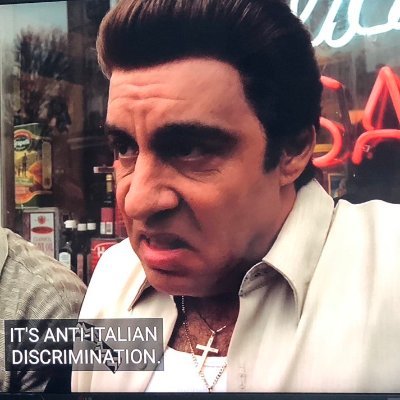
I thought that was Avellino, which is way south of here, down around Napoli. We have gangsters up here too… but they all ride mopeds and are not that scary.
https://twitter.com/blainecapatch/status/1433057893570400258
We need Bugs Bunny to saw Texas off next.
Y’all come get me and my family first
Yay for the triumphant return of the Beerguy! This was very edumacational, but there is one teeeny thing that bothers me: How could any of you lovely Canuckles vote for a dude named Erin?
Because he’s White & Irish. That automatically appeals to half of the Tories supporters regardless of qualifications.
O’Toole is in my riding. With all the hicks and mouth-breathers here, there’s no way he doesn’t get re-elected, gah. He’s such a POS
That’s my problem – he seems like a good dude, but he’s surrounded by lunatics.
I think he’s just as bad but is a bit more polished and well spoken than the others.
His military edumacation really shines that turd.
Besides a budget or treaty, what else is considered major legislation that can trigger the dissolvation (?) vote?
Also, why don’t PMs just do the Hastert Rule and only bring to the floor legislation that they’ve already got the votes for in their own party? Assuming, of course, that Meghan McCain’s Dad doesn’t BETRAY AMERICA-CANADA!
In short – the Throne Speech, amendments to the Criminal Code, changes to pensions or medicare legislation. I’m sure there’s plenty more, but those are the biggies.
“Yeah but…. *HICK*… who picks the Supreme Court?….*Hick*…..Don’t move and spread open your legs…”
A non-partisan panel of lawyers & ex-judges makes recommendations to the Attorney General on a yearly basis for federal positions. They also handle Supreme Court of Canada openings.
BeerBrother’s former law prof, Mahmud Jamal, was the most recent appointee.
Is that better than the United States’ broken system?
Yes, because it removes political affiliation from the equation. It actually looks at job performance.
So, if it was discretionary, why is Trudeau calling for the election?
Or will that be discussed in Part 2 or 3?
That answer will be discussed in Part 4, and based on whether he won or lost.
[The short answer is that polling said the time was right to try & win a majority. Almost immediately after the election call, his support dropped five points.]
Kinda seems like a blatant power grab. Not surprised polling would drop immediately after.
Wow. Isn’t this similar to what happened to Theresa May in the UK that spectacularly backfired on her?
Yup!
Hey, at least they got Boris Johnson out of it.
Why can’t the Queen just take over again?
Here? or in Canada?
I would accept a government led by the surviving members of Queen.
Will you accept both Paul Rodgers & Adam Lambert as well?
Only if they marry.
Would you accept “the reanimated corpse of Freddie Mercury” instead?
The guitarist has a PhD in Astrophysics. What could go wrong?!?
I know that name!
